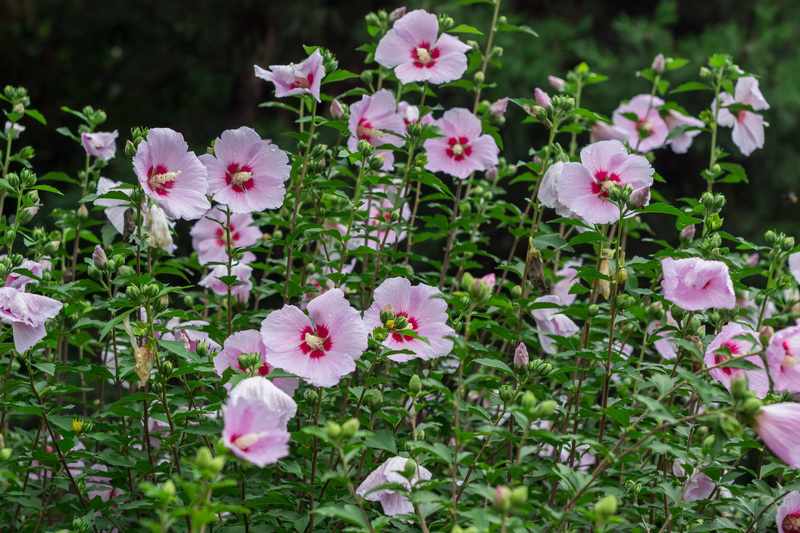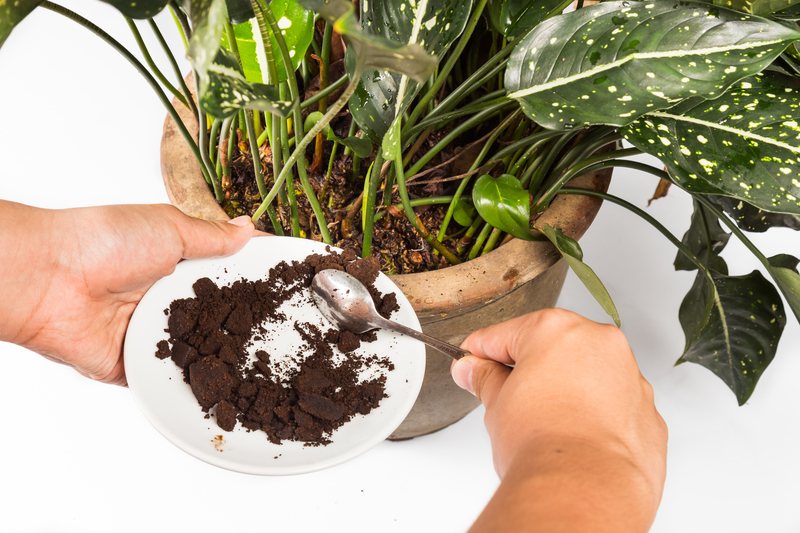Essential Tips for Cultivating a Healthy Herb Garden
Posted on 24/05/2025
Essential Tips for Cultivating a Healthy Herb Garden
Herb gardening is both a rewarding hobby and a practical way to ensure you have fresh flavors at your fingertips. Whether you're a seasoned gardener or a complete beginner, cultivating a vibrant, healthy herb garden at home is entirely attainable with the right strategies. In this comprehensive guide, you'll find essential tips and expert advice for growing an abundant, thriving herb garden in your backyard, on your balcony, or even on a sunny windowsill.
Why Grow Your Own Herb Garden?
There are numerous reasons why starting a home herb garden is a fantastic idea:
- Freshness: Enjoy the unbeatable flavor and nutrition of just-picked herbs.
- Cost-Effective: Buying herbs at the store can be expensive; growing your own saves money.
- Health Benefits: Many herbs provide medicinal properties and promote wellness.
- Sustainable Living: Reduce your food miles and reliance on plastic packaging by harvesting at home.
- Aesthetic Value: Herb gardens are visually appealing and can enhance any yard or windowsill.

Choosing the Best Location for Your Herb Garden
The success of your herb garden largely depends on its location. Select a spot that meets these essential criteria:
- Sunlight: Most culinary herbs require at least 6 hours of direct sunlight per day. South-facing locations are typically ideal.
- Accessibility: Place your herb garden near your kitchen, making it easy to harvest what you need.
- Drainage: Herbs hate sitting in soggy soil. Look for an area where water doesn't pool after rain.
Growing Herbs Indoors vs. Outdoors
Decide whether to cultivate your herb garden outdoors in raised beds or directly in the ground, or to create an indoor herb garden on a sunny windowsill. Each method has unique benefits:
- Outdoor gardens let herbs grow larger and are suitable for perennial varieties like rosemary and sage.
- Indoor gardens are perfect for limited spaces and for growing herbs year-round.
Picking the Right Herbs for Your Garden
The best herbs for a healthy herb garden are the ones you'll actually use! Some easy-to-grow herbs include:
- Basil - Perfect for pesto, salads, and Italian cuisine.
- Parsley - A versatile herb for garnishing and flavoring a variety of dishes.
- Mint - Excellent for teas, desserts, and cocktails.
- Thyme - Adds depth of flavor to meats, soups, and stews.
- Cilantro (Coriander) - A favorite in Mexican and Asian recipes.
- Chives - Mild onion flavor great for dips, salads, and potatoes.
Choose herbs based on your climate, sun exposure, and kitchen favorites. For beginners, start with a few hardy varieties and expand as you gain experience.
Preparing the Soil for a Thriving Herb Garden
Soil preparation is a fundamental factor in cultivating healthy, robust herbs. Most herbs prefer:
- Well-drained soil - Amend clay soils with sand or organic matter to increase permeability.
- Neutral to slightly alkaline pH - Use a soil test kit to ensure your levels are between 6.0 and 7.5.
- Rich in organic material - Incorporate compost or aged manure to feed your plants naturally.
Mulching your herb garden helps retain moisture, suppresses weeds, and keeps roots cool during hot summers.
Improving Container Soil for Indoor Herb Gardening
If you're growing herbs in containers, use a high-quality potting mix with added perlite or vermiculite for optimal drainage. Avoid garden soil, as it's too dense and may harbor pests.
Planting Techniques for a Healthy Herb Garden
Proper planting techniques lay the foundation for a stable, thriving herb garden:
- Spacing: Give every plant enough room to spread. Overcrowding leads to pest issues and weak growth.
- Depth: Plant seeds and seedlings at the recommended depths for each variety.
- Watering: Water well after planting to settle roots, but don't soak the soil.
Label each herb so you can monitor growth and harvesting times accurately.
Watering Your Herb Garden the Right Way
Consistent and proper watering is essential for a healthy home herb garden:
- Check soil moisture by sticking your finger an inch into the soil; water only when it feels dry.
- Water at the base of plants to avoid wetting leaves, which can promote fungal diseases.
- Early morning is the best time to water, as it allows foliage to dry throughout the day.
While most culinary herbs prefer to stay slightly on the drier side, container-grown herbs may need more frequent watering, especially during hot weather.
Feeding and Fertilizing Your Herb Plants
Herbs are generally light feeders, but occasional feeding can boost growth and resilience:
- Apply a balanced, organic fertilizer once every 4-6 weeks during the growing season.
- For potted herbs, consider a diluted liquid seaweed or fish emulsion solution.
- Avoid over-fertilizing; too much can lead to lush foliage but weak flavor.
Pest and Disease Management in Your Herb Garden
One of the advantages of growing your own herbs is fewer pests and diseases compared to other garden plants. Nevertheless, it's crucial to:
- Inspect plants regularly for aphids, spider mites, and other common pests.
- Encourage natural predators, such as ladybugs and lacewings, in your garden.
- Use organic solutions like neem oil or insecticidal soap if pests persist.
- Practice crop rotation to minimize the buildup of soil-borne diseases.
If you notice yellowing leaves or stunted growth, check for overwatering or nutrient deficiencies as potential issues.
Pruning and Harvesting Techniques for Vibrant Herbs
Regular pruning and harvesting are key to promoting bushy, healthy plants and prolonging harvest time:
- Pinch back the tips of young plants to encourage branching.
- Never remove more than 1/3 of a plant's leaves at one time to avoid stressing the plant.
- Harvest herbs in the early morning when their oils and flavors are most concentrated.
- Use sharp, clean scissors to reduce the risk of disease transmission.
Overwintering and Caring for Perennial Herbs
Many herbs, like rosemary, thyme, and oregano, are perennials in milder climates. To help them survive the colder months:
- Mulch heavily to protect roots from freezing temperatures.
- Bring container herbs indoors before the first frost.
- Reduce watering, as dormant plants require much less moisture.
Extending the Life of Your Herb Harvest
Preserving your herbs allows you to enjoy fresh flavor all year round. Try these techniques:
- Drying - Hang bunches in a cool, dark place or use a dehydrator.
- Freezing - Chop herbs and freeze in ice cube trays with a little water or olive oil.
- Infusing oils and vinegars for gourmet cooking.
Common Mistakes to Avoid When Growing Herbs
Many aspiring gardeners face challenges when cultivating an herb garden. Be mindful to:
- Avoid overwatering, which is the most frequent cause of herb death.
- Use the correct soil type for your chosen herbs.
- Don't crowd your plants -- proper air circulation is essential.
- Label all your plants to prevent mix-ups, especially with similar-looking seedlings.
- Harvest correctly to prevent stunted growth and encourage lush foliage.

Herb Gardening FAQs
How often should I water my herb garden?
Watering frequency depends on your local climate, soil, and whether herbs are grown indoors or outdoors. In general, water when the top inch of soil is dry. Outdoor gardens need less frequent watering than containers, which can dry out fast.
Do herbs need fertilizer?
Most culinary herbs thrive in average soil and do not need heavy fertilization. For robust, healthy growth, apply a light dose of organic fertilizer every month during the growing season.
Can I grow herbs from kitchen cuttings?
Absolutely! Many herbs, such as basil, mint, and oregano, are easy to propagate from cuttings. Place cuttings in water until roots form before potting them in soil.
Conclusion: Cultivating a Healthy Herb Garden is Simple and Rewarding
With a bit of planning, consistent care, and these essential tips for cultivating a healthy herb garden, you'll soon enjoy an abundance of fresh, flavorful herbs at home. Remember, every garden is unique--pay attention to your plants and adjust your care methods as needed. Here's to your flourishing, aromatic, and sustainable home herb garden!
Ready to Begin Your Herb Gardening Journey?
Start small, learn as you grow, and savor every moment--and every meal--with your lush, vibrant, and healthy herb garden.
Latest Posts
Begin Your Garden Transformation with These Essentials
Discover New Ways to Handle Stubborn Weeds
Tailoring Your Garden Landscape for Dogs

